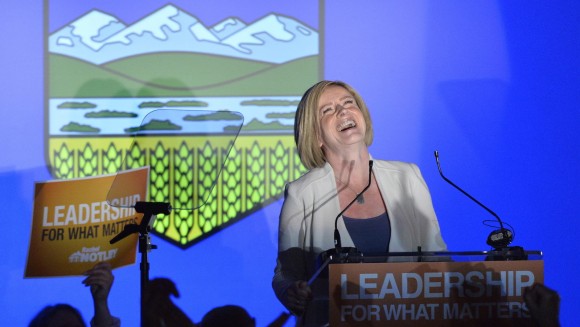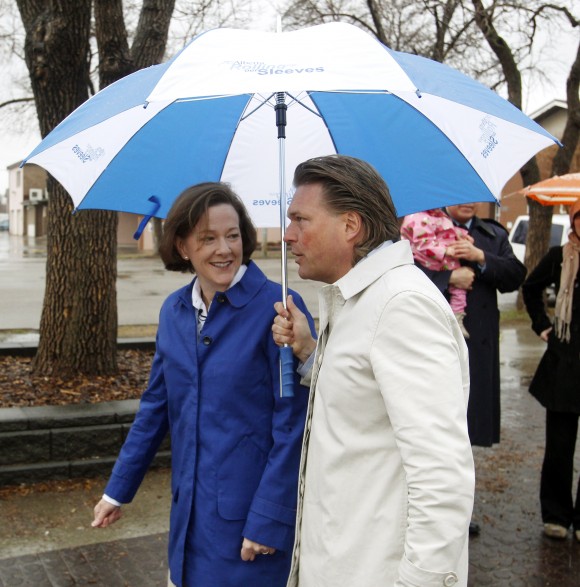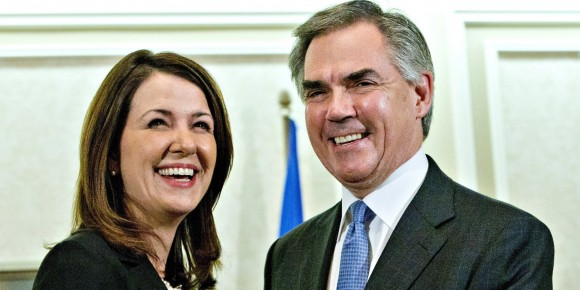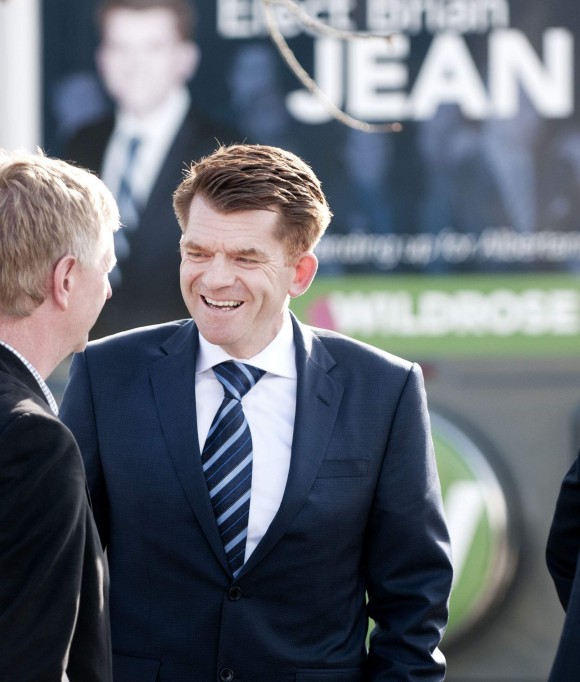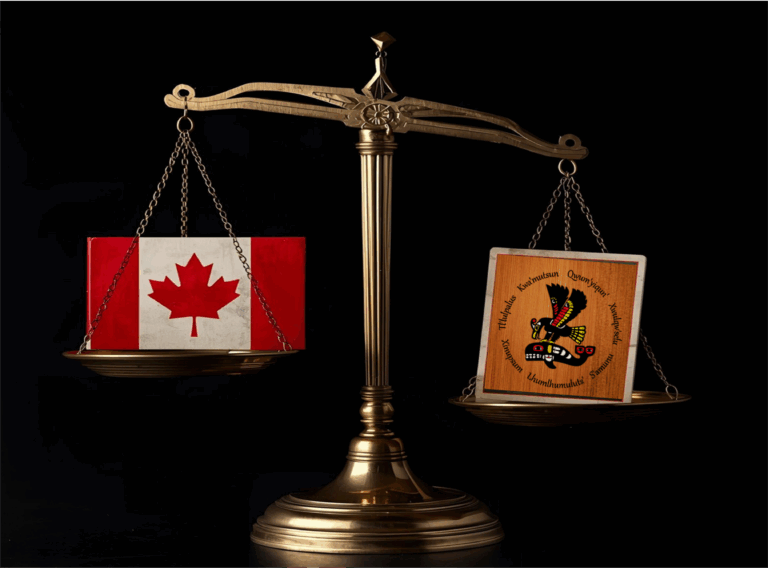All the world that’s owned by idle drones is ours and ours alone.
We have laid the wide foundations; built it skyward stone by stone.
It is ours, not to slave in, but to master and to own.
While the union makes us strong.
– From Solidarity Forever, sung at the Alberta NDP victory party
After abiding 44 years of Tory hegemony and at least a decade of open contempt, Alberta voters celebrated May Day by casting the Tories into electoral purgatory and probably eternal hellfire. With Solidarity Forever ringing through the Edmonton night, voters from Rainbow Lake to Carstairs felt a stab of compunction.
The New Democrats? Really?
How did this happen?
Jim Prentice, for my money, was a decent, competent man who inherited the burnt-out skeletal husk of the great Tory machine that Ed Stelmach had previously driven over a cliff before Alison Redford stripped it for parts and set it on fire. And while Ralph Klein’s corpse might still deliver a solid majority, the drift and decline really began in his latter two terms.
The scandals of the Redford era are well-documented: after inheriting the “no-meet committee” fiasco she gave us Tobacco-gate, South-Africa-gate, the Skypalace imbroglio, “Ghost Riders in the Sky”, and a dozen or two smaller disgraces involving fundraising malfeasance, travel expenses, and government jets. It’s difficult to imagine Redford getting into much more trouble in three years than she did, short of getting caught ordering ministerial henchmen Horne and Horner to kidnap 99 Dalmatian puppies.
She left the Tories hovering around 20 percent popularity in the polls, while Danielle Smith and the Wildrose surged to 40 percent. When Prentice declared his intentions last August, many wondered why he’d leave Bay Street to become a mortician.
Prentice faced two former Redford cabinet ministers in a race that was never close. Although Ric McIver and Thomas Lukaszuk acolytes began playing a silly game of what-if within seconds of the May 5 PC rout, Prentice was really the only choice last fall. As Redford’s Skypalace Minister, McIver was thoroughly tangled in her most cartoonish outburst of megalomania. He also has embarrassing friends – for one, a Calgary incarnation of the Westboro Baptist Church that blames the 2013 flood and probably the Flames recent playoff exit on “them gays.”
Lukaszuk, though engagingly frank and popular amongst Twitter-savvy centrists, was perhaps the second-most polarizing figure in Alberta politics. Abominated on the left for the post-secondary cuts and union-busting in his capacity as Redford’s all-purpose bully, on the right he was widely considered, in the words of Jason Kenney, “a complete and utter asshole.” Neither candidate was exactly breaking out in stigmata.
The Prentice interregnum begins
Prentice, on the other hand, had somehow remained unsullied by eight years in Stephen Harper’s cabinet. Confident and utterly compelling in person, practically the entire Tory caucus swooned as he talked hockey, humble-bragged about mining coal as a youth, and, most refreshingly, didn’t foul up before breakfast.
For once the Tory party brass and what was left of the membership agreed on a leader, while the general public yawned and went about their summer. Prentice ascended to the premiership on a wave of 18,000 votes, a total which would’ve secured him a solid fourth place finish in the last Edmonton mayoralty contest.
He moved quickly to mop up Redford’s more superficial messes, initiating a hasty fire-sale of her well-worn jet aircraft, abandoning her petty crusade to expunge wild roses from Alberta licence plates, and promising to return to honest budget reporting (although he didn’t).
Late summer polls reflected a Prentice honeymoon as he prepared to fight four big city by-elections. He boldly appointed two unelected ministers, popular former Edmonton mayor Stephen Mandel and life-long educator and administrator Gordon Dirks, to health and education respectively. Dirks’ CV at least fit his file, while Mandel’s chief qualification for the job seemed to be that at 69 he probably spent a lot of time in doctor’s offices.
The October by-elections would see Tory fortunes, however fleetingly, reversed. Wildrose ran a quixotic negative campaign against the departed Redford, while Prentice drove pleasantly around the province without contriving Redfordian deviations to Palm Springs or Johannesburg. The Tories’ toughest fight was in Calgary Elbow, where upstart Alberta Party leader Greg Clark compelled a desperate Dirks to award new portables to a local school in a naked bit of vote-buying that would later rankle.
With Wildrose flailing at Redford’s ghost and the NDP showing little sign of its impending electoral explosion, Prentice swept all four by-elections to seemingly re-establish the Tories as Alberta’s Natural Governing Party.
The Wildrose Party promptly began coming apart. At their November AGM, a motion to officially endorse the fundamental rights of “all persons… regardless of race, religious belief…” etc., “or sexual orientation” was rejected by members in favour of the less discriminating “all Albertans.” Much of the party leadership, especially Smith, had pushed the LGBTQ initiative hard and were reportedly seething at the rustic obstinacy of the members. A week later ‘Rosers Kerry Towle and Ian Donovan crossed to the Tories under curiously contradictory pretexts (she, because Wildrose was too right-wing and he, because Wildrose was too left-wing). Smith, looking forlorn, called it a cowardly betrayal.
The Right unites, for a moment
On December 17 Prentice and Smith jointly met the media with triumphant grins. The Wildrose leader and eight of her 14 remaining caucus-mates were suddenly Tories. The fall collapse of oil prices represented the greatest challenge in a generation, Smith insisted, and conservatives needed to unite behind Jim Prentice. In his three months in office, Prentice had proven to her that he was an honest and trustworthy leader, a staunch conservative fiscal manager, a true friend, a dependable stay-at-home defenseman, a first-rate chuck wagon driver, and made the fluffiest pancakes she’d ever tasted.
The rumour was, and persists, that Prentice had agreed to adopt much of the Wildrose fiscal playbook, shelter the crossers in their upcoming nomination battles, and toss them a couple of major cabinet posts, all of which Smith and Prentice half-heartedly denied.
In a low moment, Alberta’s only credible opposition had sold out for government backbenches in a backroom deal. What they termed a “merger” was negotiated in secret with neither party’s membership consulted. Albertans reacted with near-universal disgust. Smith and her fellows would wear the deed immediately, particularly deputy leader and habitual floor-crosser Rob Anderson, who soon announced his departure from politics after receiving an anonymous “death threat” (join the club, Rob).
Prentice initially seemed to escape the floor-crossing opprobrium unscathed, and, with the Wildrose Party out of the way and oil prices in the tank, attempted to hammer home the fiscal realities wrought by a decade of deficits and $40 oil. As he diligently pre-positioned for an expected austerity budget, an innocuous remark blew up in his face.
During an early March CBC Radio appearance, a caller asked who was to blame for Alberta’s dire economic situation. Prentice, speaking comfortably off-the-cuff, replied that Albertans had long enjoyed fine public services which, thanks to energy revenues, they had never actually paid for, suggesting that “we all need to look in the mirror.”
Forgetting or maybe ignoring that by any reckoning we are entirely to blame, many Albertans went apoplectic. Prentice was arrogant. Prentice was shifting blame for Tory mismanagement to hardworking, taxpaying Albertans. Prentice was out of touch. Prentice was the one who needed to look in the mirror.
So began the Tory spiral. The March budget made things immeasurably worse by introducing 59 fee and tax increases of such pervasive scope that every Albertan could expect to be stung twice a day just in their regular course of existence. Gas, booze and tobacco taxes, fee hikes for registering a car, a birth, a death and on and on.
Prentice, that sternest of fiscal conservatives, would only “hold the line on spending.” There would be no substantial cuts; in fact, the first year would see a slight overall spending increase. The proposed deficit rang in at a record $5 billion, and the government would rack up $31 billion in debt by 2020. Slight progressive tiers would be chiseled into Alberta’s flat income tax rate, obliging the rich to pay “just a bit more.” The only target not on the hit list was corporate income tax, which was the best news yet for the NDP.
In short, Prentice had produced a budget everyone could hate.
With that masterstroke, he circumvented a brand-new fixed election law and dropped the writ, arguing he needed a mandate to pass his transformative budget. With two of the main opposition parties leaderless and in chaos and the other having elected its new leader in October, the move would only serve to offend voters’ sense of fair play.
On to Armageddon
The initial stages of the campaign were, as expected, rather boring. Everyone – perhaps literally everyone – expected another Tory majority. Rachel Notley had announced to sniggers that this time she really was running for premier. Undistinguished former Conservative MP Brian Jean, who had taken over the Wildrose leadership on the very night Danielle Smith lost the Okotoks-High River PC nomination to a complete nobody, conceded he was running to retain official opposition status.
As the campaign wore on, though, poll after poll depicted a three-way race between the Tories, a resurgent Wildrose Party, and a suddenly relevant NDP. Burned in 2012 by the accursed pollsters, everyone quite reasonably ignored them. Notley, though, consistently delivered solid performances. Her one embarrassment came with the release of the NDP platform, which promised to balance the budget as quickly as the Tories while substantially increasing health and education spending. A day later the blushing Dippers admitted their math was off by a couple billion.
One might have expected such a flub would be lethal for a party whose grasp of fiscal reality has always been suspect in Alberta. But voters shrugged, and turned to the spectacle of the ongoing revelations of Tory nomination skulduggery that were now drawing RCMP investigations and lawsuits. The PCs appeared to be getting nervous. The ten-year fiscal plan that Prentice had explicitly made the election question was now being remodelled with each campaign stop. The polls no one believed were now showing the Tories in second place or even third.
Elections Alberta’s first quarter fundraising numbers revealed a healthy flow of small donations to the NDP and Wildrose parties from grassroots supporters. The Tories were raking in twice as much, but, metaphorically speaking, it was almost all coming in bigger cheques from Big Alberta Tarsands Corp., the Alberta Association of Parasitic Lobbyists, and the Legion of Government Appointees.
The suddenly high-stakes televised debate was mostly uneventful. Jean repeated “the Wildrose Party will never raise your taxes” so often concerned viewers began to wonder if he’d had a stroke. Notley was smart, sensible, and by far the most aggressive. Prentice handled the three-front attack reasonably well, but focused his fire on Notley. In attempting to chide her over the abortive NDP platform release he suggested with a bit too much condescension that “math is hard.”
That one tiny act of mansplaining quickly boomeranged into a twitter hashtag that would haunt him for the rest of the campaign and maybe forever; some future unfortunate cemetery caretaker will probably at least weekly find himself scrubbing a scrawled #mathishard from the Prentice cenotaph. It was obviously a fair comment – a serious contender for government should have an accurately costed platform – but hopelessly out of step with our gender-sensitive times.
The charges of First Degree Arrogance and Aggravated Condescension would stick. And the Tories would just keep compounding their guilt.
Meanwhile, Notley cruised from one large rally to the next larger rally. The NDP policy book, even with the math corrected, still contained some ominous suggestions for a provincial economy teetering on the brink of recession, including a 20 percent increase in the corporate tax rate, a new royalty review, and a 50 percent boost to the minimum wage. But for the most part she stuck to sunny high-level messaging, and refrained from shouting and spitting and generally going full Polina Molotova.
Jean, who is actually a thoughtful, expansive, and humorous public speaker, grew visibly more comfortable during the campaign, and even won over a few detractors by poking fun at his own wooden debate performance. His platform was to the fiscal right of Prentice’s but not drastically so, and on files like urban development and environment he was in many ways more progressive.
The definitive image of the campaign (and a healthy reminder of what the Tories had become) came in its waning days when five Edmontonians of substance called a press conference. There were four prominent businessmen, all big Tory donors and, of course, regular jostlers at the teat for hundreds of millions in government contracts, joined by the Tory-appointed chair of the board of governors of the University of Alberta. Clearing their throats importantly, they warned that Albertans weren’t “thinking straight” and called the New Democrats “amateurs.” One went on a sustained plaintive whinge, crying, “Why is it always the corporations? Why me? Why is it me?”
Arrogance. Condescension. Entitlements.
In my old stomping grounds in Sturgeon County the Tories had almost literally written Arrogance all over their own election signs. Tory incumbent Jeff Johnson plastered the countryside with signs saying “Thanks Jeff, for $4 Million Renovation to Namao School,” and various other projects Albertans had paid for and built but “Jeff” was taking credit for. In Calgary Elbow placards boasted that “Gordon Dirks is Re-Building Elbow Park School” and other messages of gross malfeasance in election advertising. It was old-time Tory politicking, but this time Albertans who weren’t outraged merely laughed.
The Orange revolution
Election night finally arrived for a nervous public and a subdued commentariat. Despite persistent evidence of a looming NDP victory, no one seemed quite able to imagine it. Former Finance Minister Doug Horner, who presided over three consecutive budget deficits during years of record revenues, once again demonstrated his superior predictive powers and pronounced on CTV that another PC majority was in the bag. And indeed, the advance poll results at first put the Tories in front.
And then, suddenly, it was all orange.
It was a night of reckoning and justice, as cabinet minister after crony after benchwarmer went down in orange flames. Every single Wildrose floor-crosser would be purged from the Legislature. The party they had abandoned was raised from the dead. The government’s preferred PR firm, Navigator Ltd, was satisfyingly scorched. And Prentice, speaking to an empty hall, conceded his leadership, his seat and his political career even before all the votes had been counted.
The initial elation that burst from the hearts of the droves of centrist and conservative voters who voted for anybody but the PCs was quickly tempered by the realization of what they had done.
New Democrats. In the Legislature. New Democrats with flowers and actual power. In our Legislature.
The polls seem to confirm the popular notion that the May 5 result was more a Tory defeat than an NDP victory. According to Abacus a full 93 percent of NDP voters were voting for “change” before all other considerations. Only 7 percent said the NDP itself was their prime motivation.
The right had split to a degree so mutually destructive that no one (despite Danielle Smith’s recent efforts at rehabilitive revisionism) would have believed it possible even a month earlier.
The Abacus pollsters found that the New Democrats swept almost every conceivable category. Wildrose hung on to rural Alberta and the PCs maintained a plurality only among the white-topped demographic who first voted for them and last considered an alternative over four decades ago. The NDP took every other category – all other age groups, genders, income brackets, the public sector, the private sector, religious believers, non-believers, dogs, cats, and quite possibly the younger members of Jim Prentice’s immediate family.
Albertans wanted change, or maybe more accurately to strike a hard cosmic blow against arrogance, condescension, and entitlement. Either way, Rachel Notley’s NDP was the handiest instrument.
The New Democrats were likely not the result most of us favoured. But had we elected another Tory majority, how would we ever look ourselves in the mirror?
~
Colman Byfield is an Alberta writer and columnist with the Sun newspapers.
